Picture a serene mountain landscape: towering peaks, rounded with age as if sighing from their own weight. Cliff faces shrouded in twilight, their outlines deepened by the sun falling into the valley’s open arms. A large meadow stretches out before you, with waist-high grass rustling in the gentle dusk breeze, ushering in the refreshing cool of night. Each blade sways like an organic metronome, and from afar they blend into a rolling sea of green. The voice of the nearby river bounces off the valley walls, soft but constant in its late-summer state. You’re camped in a clearing, enshrouded by trees just a few paces off-trail in the sparsely shaded wake of a recent wildfire.
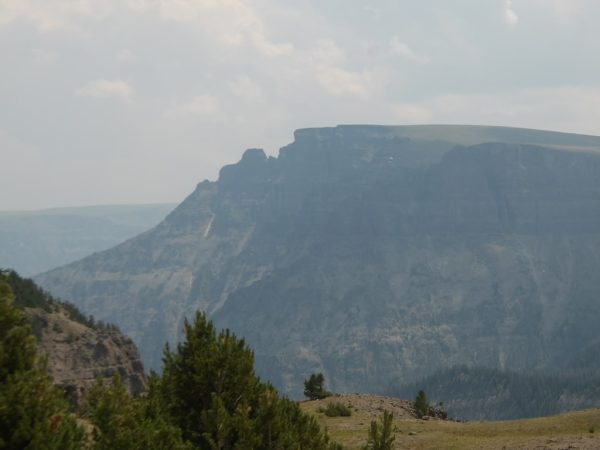
But what if I told you those aren’t the best parts of camping? Rather than picturing that perfect moment, when you ride the highs of freedom and adventure, remind yourself of nature’s unforgiving tone. Of those pants, soaked through and freezing from the recent hailstorm, the thunder still ringing in the natural amphitheater around you. Of the tiredness built up over grueling days, creeping by slowly, each step harder as that cheese in your pack slowly turns to lead.
So why am I pitching you an experience ridden with problems guaranteed and twists (especially ankle-wise) around every corner? Let’s start with a definition: type two fun. Type one fun is instant gratification and fun in the moment. Type two fun, however, is not fun in the moment but fun to look back on afterward.
Camping has plenty of type one fun. Nature is beautiful, and pitching a tent allows us to experience the far reaches of our planet we couldn’t otherwise experience. The untouched natural world is impactful beyond its photogenic beauty. It empowers us to value the environment, often too low a priority in a society that has replaced such beauty with asphalt and concrete.
Camping will come with bad times, setbacks, and moments when you just wish you had a roof and a toilet. But that’s part of the experience, and those type two moments are more important than the flawless ones. You’re learning, you’re exploring, and the world and its infinite possibilities are opening up to you. So yes, I lost a croc in a foot of mud. Yes, I was furious at the time. And yes, it is hilarious.
Research shows that time spent around greenery and water sources directly benefits mental health. It’s unrealistic to expect everyone to live by a water source or even around extensive greenery. Excursions like camping can provide a refreshing dose of nature and a time to reflect on our lives.
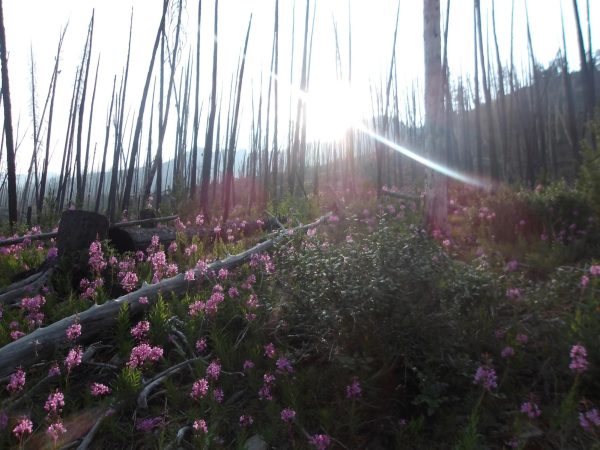
That natural connection we develop is therapeutic. Synchronizing our lives with the sun’s schedule and engaging in our surroundings forces us to live in the moment. Away from technology, we redefine our relationships with nature and others, and by extent, ourselves.
Camping simplifies life, replacing the multi-level decisions we make every day with simple routines and a rigid schedule, eliminating the many stressors that plague us daily. Society’s burdens—once viewed as necessary evils or even human nature—suddenly reveal themselves redundant. That weightless feeling, despite the 60 pounds on your back, is addicting.
Camping teaches happiness through appreciation, rewarding hard work and drive with the pride of accomplishment and experience. We worked for meals, cleaning pots with pine needles and boiling water on 20 degree inclines. And the food tasted so much better because of it. We wore some combination of four different layers to stay warm. I had three pairs of pants, including rain gear. Nothing is guaranteed in the backcountry, and it’s your hard work that keeps you alive.
I think back fondly on those memories, even those less than enjoyable in the moment. That’s type two fun, leaving a positive mark on your mind forever, building the core experiences that make you you.
While what I’m describing may sound like torture, it’s not. These small tasks like pitching tents and treating water teach independence, and the pride in mastering skills like these instills a strong work ethic. And most importantly, camping trains gratitude. By living modestly, we recognize the luxuries we have, empathize with those who don’t share in our fortune, and as a result are happier individuals, ready to succeed back in the frontcountry.
Nothing cultivates despondency like social media—that’s why camping’s can-do message is so important.
Happiness among teens has suffered in recent years, in no small part due to the boom of social media, allowing us to compare ourselves with others and constantly find those portraying themselves in more favorable circumstances. We’re shown others’ inflated success, twisting our worldview to one void of opportunity. But in the backcountry, we look back on regular life, its familiarity desirable and its ease apparent. Returning to society, we have the tools to succeed in real and powerful ways.
We also learn how to foster relationships. Camping in group settings is one of the best ways to improve social skills and teamwork. I’ve never quite found a friendship like I have on camping trips. It’s the shared struggle, the need to cooperate, and the camaraderie we build that tie us to each other. Detached from society, from technology, from superfluous personalities put up like shields against the onslaught of judgment heaped on by anonymous strangers eager to shame, we become truer to ourselves and the world.
We open up to others, and they return the favor, going through a phase of group relationship called “forming.” During this process we familiarize ourselves by asking questions, sharing stories, and engaging with each other whenever possible, a critical part of group development in a camping trip’s early days. We share moments together, of celebration and struggle, and we grow adept at navigating the mini-society we create as an isolated group, forming our own list of norms and expectations.
Not only do we develop group culture on trips, we also amend our personal character. That’s a great vocab word: character. Merriam-Webster defines it as “moral excellence and firmness,” though I’ll tweak that a little. Character comprises our morals, principles, self-standards, discipline, and in some ways, honor. Type two fun revolves around the idea of “building character.” But what does that mean?
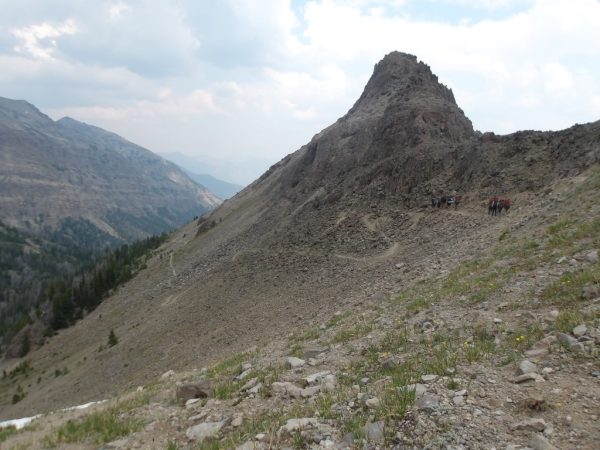
Type two fun often comes with lessons. Mistakes in the backcountry have consequences, and nothing teaches how to pitch a tent like sleeping in a sizable puddle (speaking from experience). While these moments are avoidable by never camping, avoiding problems doesn’t solve them. We learn from mistakes, from failure, and without consequences to our actions those same mistakes can occur at much worse times. Plus, I now get to look back on the time we decided to pitch our tent in the rain and chuckle at the naïveté of that choice. That damp night was a small price to pay for the memories I’ll cherish forever.
With good judgment and some guidance, nature’s unforgiving character acts as a guardrail, keeping you on track with an occasional slap on the wrist. You’re not invincible, far from it—as nature is keen to prove—but you can always add safety measures. As with anything, risk management is important, and it’s a skill camping reinforces constantly. Analyzing your environment and both the likelihood and consequence of a specific scenario is equally relevant to crossing the street as it is camping.
You also have to understand that no matter how much you prepare, setbacks will always occur in life. The best tool for dealing with them? Positivity. My favorite example is the foot-nail incident. My friend Finn stepped on a nail with the full weight of his body and his backpack. It punctured the sole of his hiking boots and sunk deep into his foot. For a few days he could barely walk. After lots of rest and treatment, we were forced to rendezvous with a rescue group many miles and thousands of feet in elevation away, all of which he covered with a literal hole in his foot. The entire time he cracked jokes, helped out around camp, and continued being his upbeat self. He didn’t let that nail ruin his trip. He even found it later and brought it home as a souvenir. He savored his last few days in those mountains, with our group, enjoying it to the best of his ability before getting wheeled off to a hospital.
I’ve mentioned some seemingly disastrous examples. In reality, they aren’t that bad. Dwelling on imperfections, which are always present, means you’ll never be happy. It’s easy to go through entire camping trips miserable because your feet hurt, but you can also look up and appreciate the incredible landscape around you. Recognizing and accepting the necessary growing pains of life is important to ultimately being happy.
Happiness is a mindset, and anyone you ask will give you unique definitions of what we all perpetually strive for. Remaining positive, especially in trying times, allows you to let go of stress and live in the moment. Saving all that stress, and having the tools to deal with stress when it’s inevitable, is one of the most important aspects of being healthy. Camping uses the bad to remind us that all things pass, so that we can look back on days of struggle as forming moments we would do again and again. Because after all, they were pretty fun.
Surrounded by nature, by challenge, by camaraderie, and by the limitless unknown, we become our strongest selves. From the hottest fire comes the finest steel, and sometimes it takes a little extra heat to mold us. Life isn’t easy and it’s too short, but if we take the time to walk the paths and live it, those fleeting moments can go a long way.


















































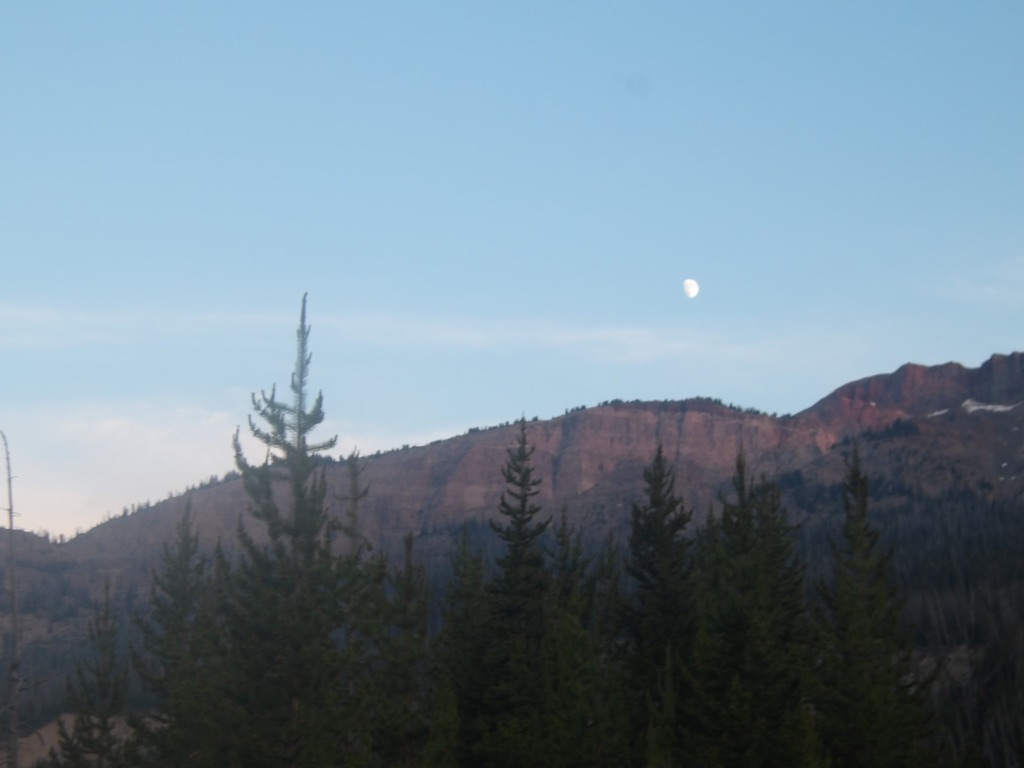
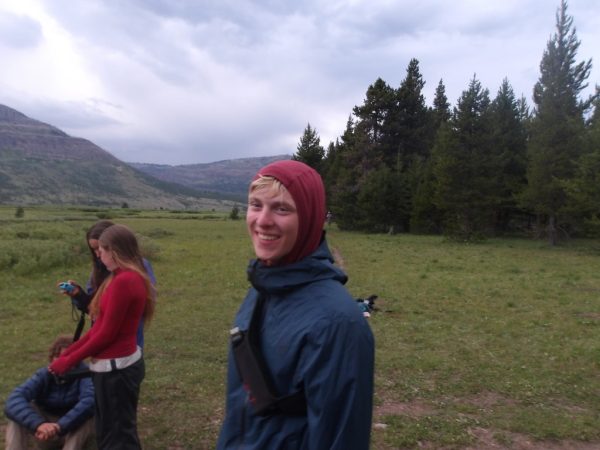


Harry Andrews • Apr 21, 2025 at 8:56 am
A fantastic article by a very mature individual. I’m glad to be part of his life!!!
Harry papa Andrews